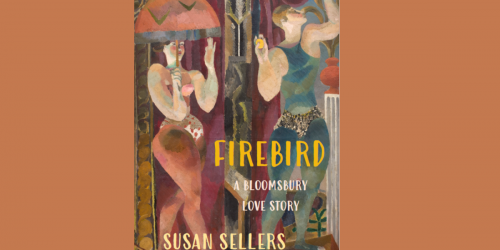
Longlist announced for Lucy Cavendish Fiction Prize 2022
The 2022 Fiction Prize longlist reflects once again a wealth of literary talent and showcases a diverse range of styles and voices.
An interview with Lucy’s Creative Writing Supervisor Jo Browning Wroe, author of A Terrible Kindness
Jo Browning Wroe grew up in a crematorium in Birmingham. She has an MA in Creative Writing from the University of East Anglia and is now Creative Writing Supervisor at Lucy Cavendish College, Cambridge. Her debut novel, A Terrible Kindness, was shortlisted for the Bridport Peggy Chapman-Andrews Award and is coming out on January the 22nd (published by Faber Books).
In this interview, she talks about her journey as a writer, inspirations, and career.
I’ve always known it’s what I do best. For 12 years I was an editor, helping other writers write as well as they could. Then I took an evening class in creative writing and it was as if all the stadium lights went on and I knew I wanted to try as hard as I possibly could to be a novelist. So I went freelance and took the MA in Creative Writing at UEA part time so I could still work.
I’m inspired by ordinary people being extraordinary.
What I love about writing is getting into that state of concentration (they call it flow now, don’t they?), and what I’m imagining is more vivid and real than the room I’m sitting in. It feels like magic.
A Terrible Kindness was inspired by conversations I had with two embalmers, by then in their 70’s, who as young men had gone in 1966 as volunteers to the Aberfan disaster, when a mining waste tip, loosened by rain had careered down the Welsh mountainside and onto a small village primary school.
The story is about William Lavery, a young, newly qualified embalmer who answers the call to help. The book begins and ends in Aberfan, but in between are 17 years of William’s life, as a boy chorister in Cambridge, in London training to be an embalmer, and after Aberfan, with post-traumatic stress disorder, and his marriage in trouble, William returns to Cambridge and helps with a choir for the homeless, reconnecting with his musical roots and ultimately a return to Aberfan, to try and mend the fractured relationships in his life.
It is an honour to be Creative Writing Supervisor at Lucy Cavendish – the college in Cambridge with an excellent reputation for encouraging writers, with the Fiction Prize and the Student Fiction Prize. During Lent Term, I usually lead a six-week writing workshop for the first ten students who sign up, from any discipline. This means there is always a wonderful mix of people, all with amazing stories to tell. This has, without exception, been a wonderful experience with talented writers. Unfortunately, I’m not doing that this year because of the publication of my book. I also lead a one-off workshop on the short story for students who are thinking about entering the student prize. And once a year, along with my co-director, writer Miranda Doyle, I lead a Creative Writing Course for non-college people. Originally, this was a five-day residential, but for the last two years, we’ve been doing it online over a weekend. I love teaching and leading workshops and am invariably bowled over by the talent in the room.

The 2022 Fiction Prize longlist reflects once again a wealth of literary talent and showcases a diverse range of styles and voices.

An interview with Lucy Senior Associate, Susan Sellers, author of Firebird: A Bloomsbury Love Story

Emma Hughes, author of No Such Thing As Perfect, tells us about her writing career and shares some pro tips.